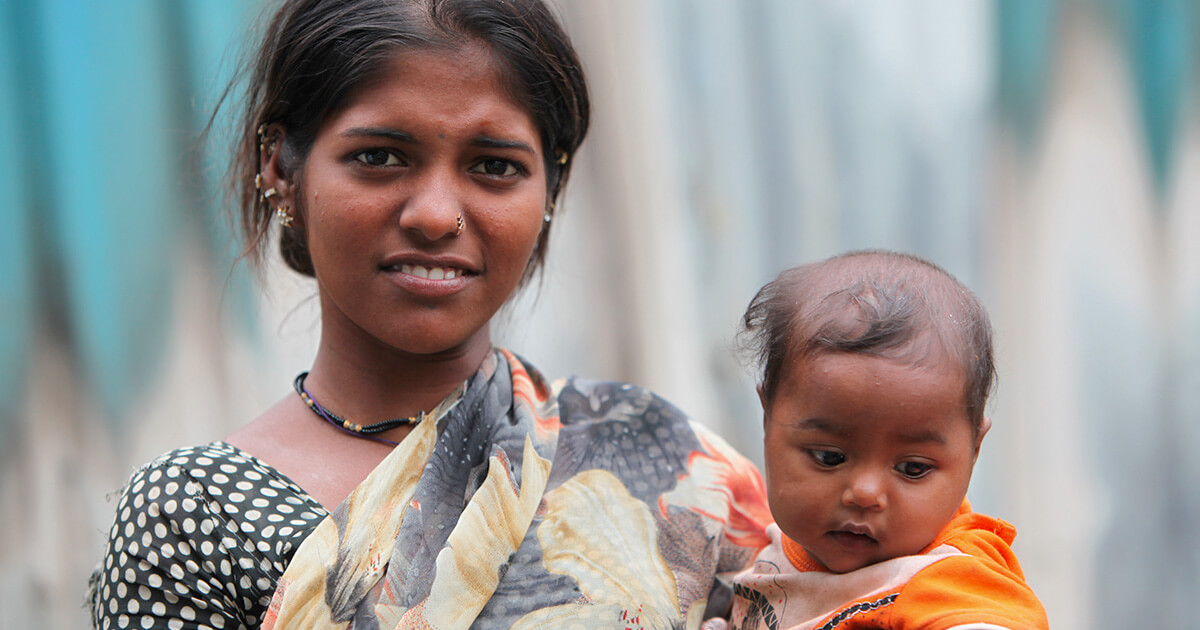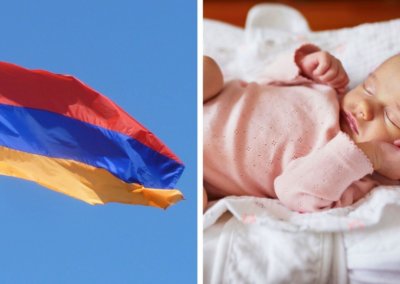The lives of almost 5 million baby girls in India will be lost over the next decade due to the prevalent use of sex-selective abortions, according to new research.
Academics at King Abdullah University of Science and Technology in Saudi Arabia estimate the average annual number of “missing female births” will be 469,000 from 2017 to 2025 and 519,000 from 2026 to 2030, resulting in around 6.8 million lives lost.
Over the next decade, between 2020 and 2030, this would mean the lives of 4,890,000 baby girls would be lost to abortion – an average of more than 1,338 every day.
Anuradha Saxena, a member of the women’s empowerment division for Sikar district, in Rajasthan, told the Guardian that the figures came as no surprise to her.
“It will take time to remove deep-rooted custom and belief. Progress is slow and incremental but we are working on making girls valued and cherished instead of being seen as a liability who needs a huge dowry to be married off,” she said.
Fengqing Chao and her team modelled the sex ratio at birth across 98% of India’s population, along with fertility rates and national survey data on people’s preferences to have a son or daughter.
The model predicted that there would be 6.8 million “missing female births” across India between 2017 and 2030. The prediction started with 2017 as this is the year after the most recent birth data was published.
India’s missing female births over the next 10 years could have a significant impact on the global sex ratio, since the UN predicts that India will overtake China to become the world’s most populous country in that time period.
‘No girl born in three months’
Despite outlawing sex-selective abortion and pre-natal sex detection in 1994, sex-selective abortion and infanticide remain common practice due to the cultural preference for male children.
A recent report from India’s Government also found an estimated 63 million women were “missing” from the country’s population.
Census data from 2011 showed there were 919 girls to every 1,000 boys for children up to the age of six. In some northern states that ratio was as low as 830, according to the United Nations Population Fund (UNFPA).
The World Health Organization says the natural sex ratio at birth is about 105 boys to every 100 girls.
Last year, it was revealed out of 216 births across dozens of villages in northern India, over a 3 month period, not a single girl was born.
Social worker Kalpana Thakur said at the time that the authorities were not doing enough.
“No girl child was born for three months in these villages. It cannot be just a coincidence. This clearly indicates female foeticide is taking place in the district. The government and the administration are not doing anything.”
Sex-selective abortion: A worldwide problem
Sex-selective abortion is a well-documented problem in countries around the world, resulting in highly skewed sex ratios.
Since amending its abortion law in 1998, sex-selective abortions have become a major issue in Canada.
An article in the Canadian Medical Association Journal describes how “easy access to abortion and advances in prenatal sex determination have combined to make Canada a haven for parents who would terminate female fetuses in favour of having sons…”.
Similarly, evidence of sex-selective abortions has been found in the Australian territory of Victoria, which introduced abortion on request in 2008.
Following the law change in Victoria, Dr Mark Hobart was investigated by the Medical Board of Victoria for failing to refer a woman for a sex-selective abortion. Additionally, an investigation by Australian broadcaster SBS found higher numbers of boys than girls being born in some ethnic communities in Australia.
A recent study from La Trobe University, analysing more than a million births in Victoria, suggests some parents could be aborting unborn female babies in order to have a son.
In the UK, shadow Minister Naz Shah has previously called for the Government to stop the misuse of Non-invasive Prenatal Test (NiPT) after evidence emerged they were being used to abort pregnancies based on gender.
The Labour MP said: “The government needs to look into this exploitative practice and enforce appropriate restrictions.”
However, Ms Shah is presumably okay with disability-selective abortions as she also said: “NIPT screenings should be used for their intended purpose, to screen for serious conditions and Down’s syndrome.”
Polling, conducted by Savanta ComRes, showed 89% of the general population and 91% of women agree that gender-selective abortion should be explicitly banned by the law.












